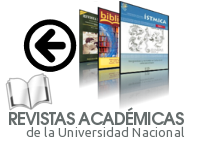Code of ethics
Code of ethics
For more information, refer to the Best Practice Guidelines for Journal Editors and the International Standards for Editors and Authors, established by the Committee on Publication Ethics (COPE).
On bad practices, biases and unacceptable errors
Types of plagiarism and citation manipulation include inadequate citation of secondary sources; incorrect attribution of citations; improper application of the citation rule; subtraction or addition of words to a citation that leads to misunderstanding; excessive use of self-citation; detection of suspicious repetitive or redundant patterns in citations.
Direct and indirect plagiarism (copying and pasting): when parts or all of a given work are deliberately or unconsciously taken, transcribed, duplicated or paraphrased, appropriating and falsifying authorship.
Disregard for the privacy of others. When the use of informed consent is omitted or the unauthorized use of the image of third parties occurs.
Reuse or redundant publication: inclusion of parts of already published works as if they were unpublished material.
Inclusion of authors who have not participated in the research or process of preparing the article or the exclusion of authors who have participated in the research or process of preparing the article.
On authorship and contributions
A “Letter granting rights for publication” must be provided, in which the authors attest to the authorship of their proposals and authorize this journal to publish them if they pass the filters and other phases of the editorial process. This is done to avoid omission of direct participants in the preparation of the documents (ghost authors), or their unauthorized appearance (gift authors).
In cases where there is doubt about authorship, applicants must explain the circumstances via e-mail. In addition, no author may be withdrawn without a note of acceptance from the person who is withdrawn. When there are physical or material causes (for example, health problems or death), the editorial team will resolve the situation according to the specifics of the particular case.
Appeals and complaints
Arguments or appeals related to the rejection of applicants’ proposals will be dealt with and resolved efficiently, which will not imply a commitment to publication. The foregoing does not apply when an infraction of any of the points mentioned in the first section, “On bad practices, biases and unacceptable errors,” has been committed.
To register an appeal, the interested person must send a letter via e-mail explaining the situation in a clear, concise and well-argued manner.
In the case of complaints related to plagiarism, the journal will apply its own detection mechanisms to verify these findings. If necessary, it will resort to external expert opinion and will resolve the situation according to corresponding institutional, national and international regulations.
When appeals are related to the result of a peer review, substantiated arguments presented by the authors will be evaluated as long as they are legitimate in the terms of this code. If doubt persists, a new review will be carried out to arrive at a conclusion without the possibility of a second appeal.
Complaints related to the conduct of members of the editorial or technical team of the journal will be dealt with by the remaining members of the editorial team. If the case warrants it, the legal mechanisms established by the Universidad Nacional in general will be resorted to.
Conflicts of interest
The journal requires a declaration of conflicts of interest as a transparency tool. Personal or employment relations, financing or provision of resources, etc., must be identified by the authors and explained via e-mail.
Authors, reviewers and members of the journal’s editorial and technical team must indicate if there is any interest that may affect the effectiveness or objectivity of the tasks they perform for the journal. Authors must do so when they submit their article, and reviewers must to so when they receive a request for a review, or at the time they identify any situation that may influence the result of their review. Reviewers must promptly inform the Editorial Board of this situation so that it can replace them in a timely manner.
If a conflict of interest is detected in an article that has already been published, the situation will be dealt with in accordance with the third section on “Appeals and complaints.”


_11.55_.09_a_._m_._.png)
_1.34_.01_p_._m_._2.png)
_9.45_.02_p_._m_._.png)




_2.23_.09_p_._m_._.png)
_2.35_.17_p_._m_._.png)

